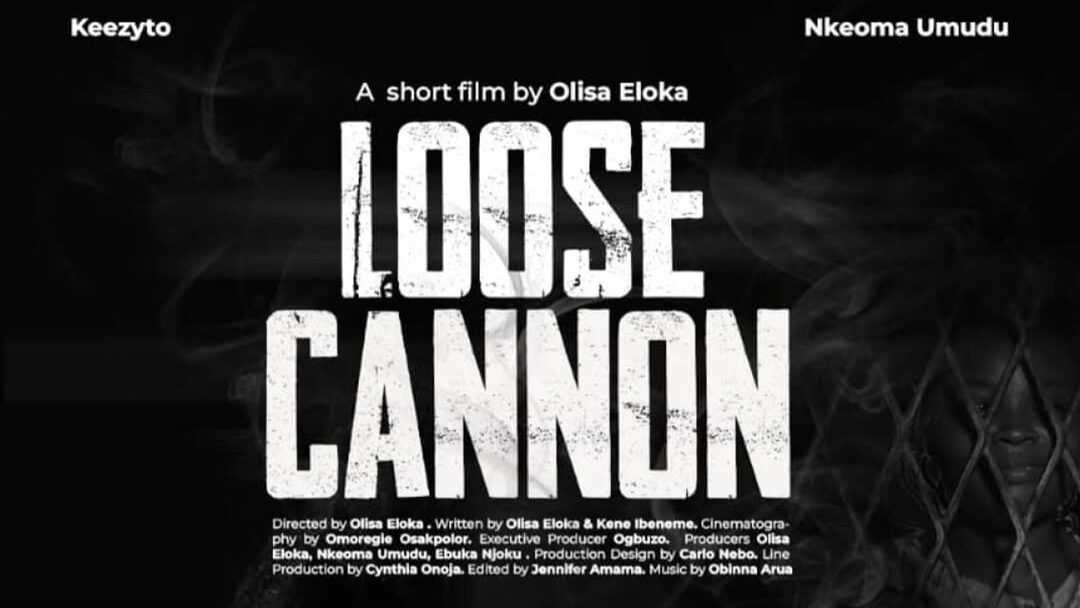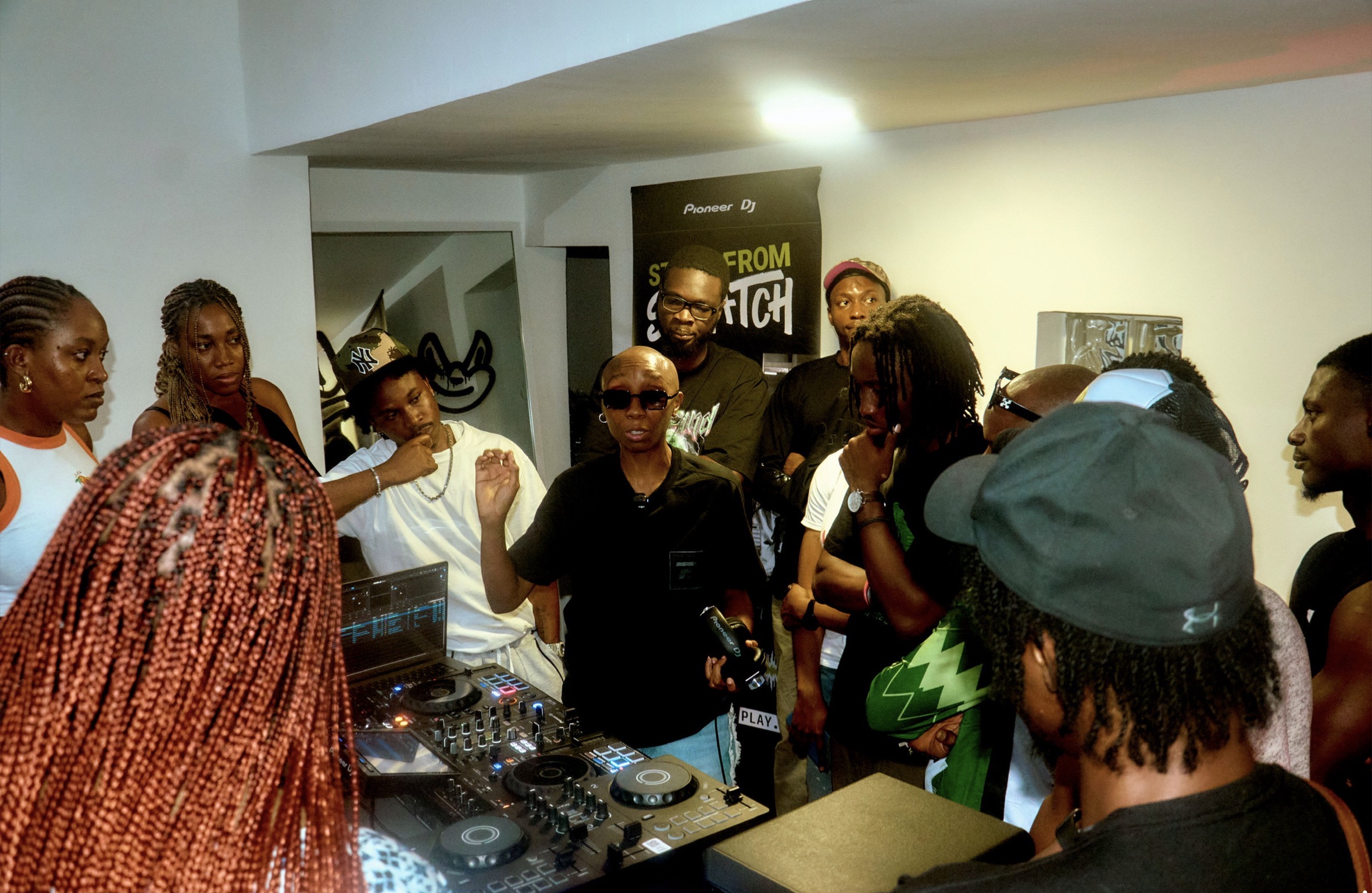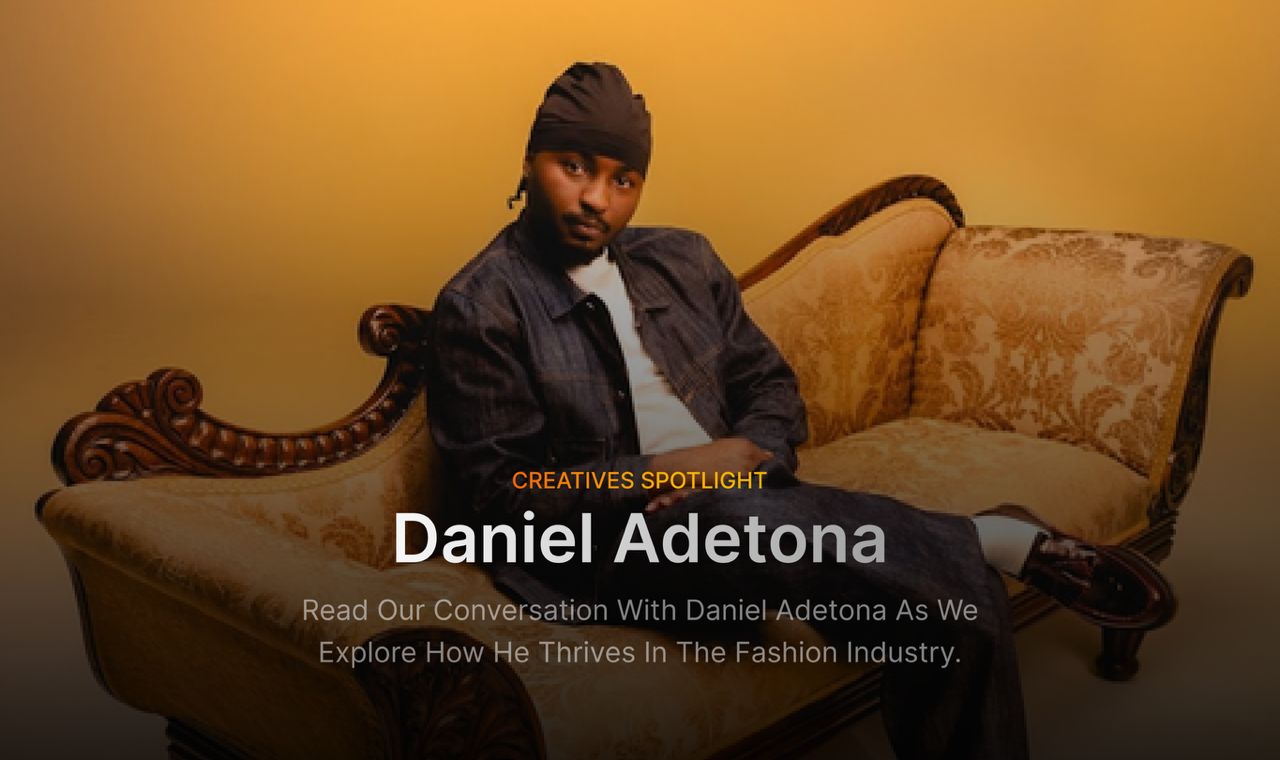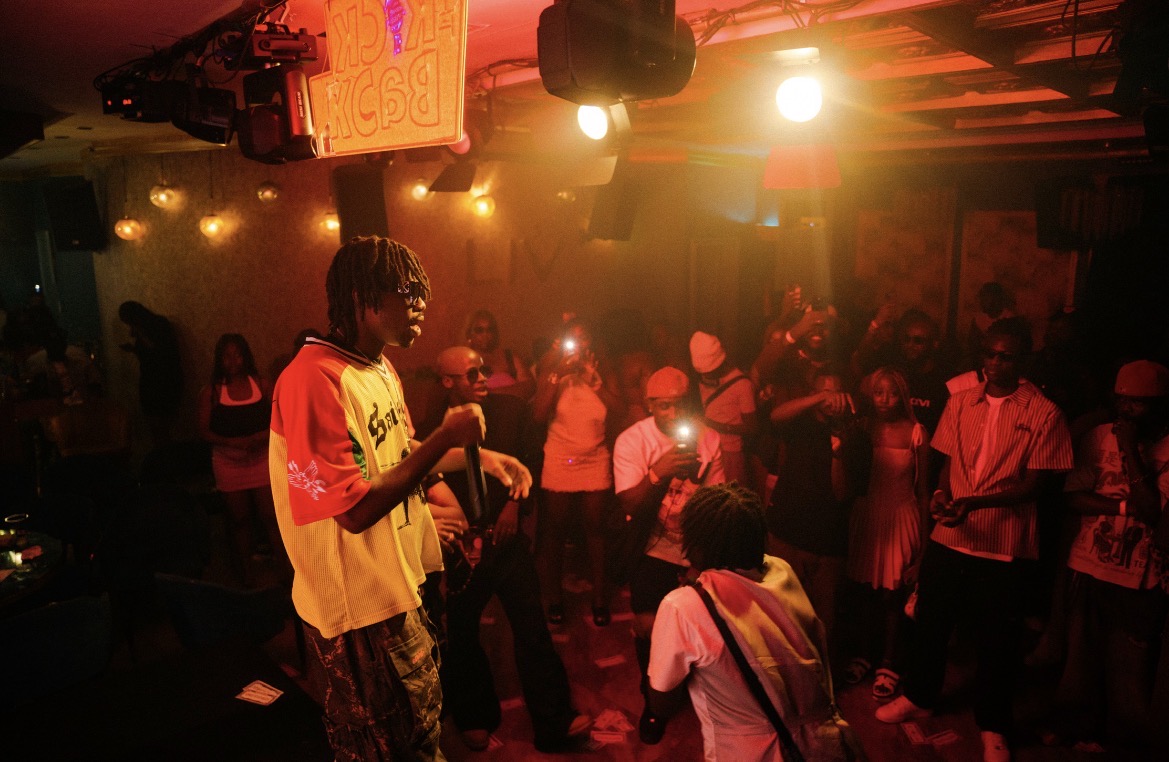By Ifeoluwa Olutayo.
Loose Cannon, a film by Olisa Eloka, explores the very haunting aftermath of the genocidal war waged on the Igbo people, one where words like reconciliation and rebuilding a nation were uttered, but to this day, never truly done.
The reality is this: we live in a country barely holding itself together, the sentiment of ethnic bigotry permeating every facet and point in Nigerian society. You hear it in the markets, in schools, in statements by political leaders, in the global sphere of social media by educated individuals. It’s a world of fragile order we live in now, and ignoring this rift has been the top tactic of those who know that there is a historical reality of harm and pain to reckon with.
When issues are not addressed and forced into silence, they emerge in uglier and nastier ways. You only need to take a look at our most recent elections to see a nation overrun by hateful positions, one reinforced by generations of silence and resentment.
The colonists are complicit in the current situations we find ourselves in, but if we must reemerge with not only ideas but a true, actionable position of national unity, we must face our past head-on.
I sat in conversation with Olisa Eloka about Loose Cannon and the importance of making it.
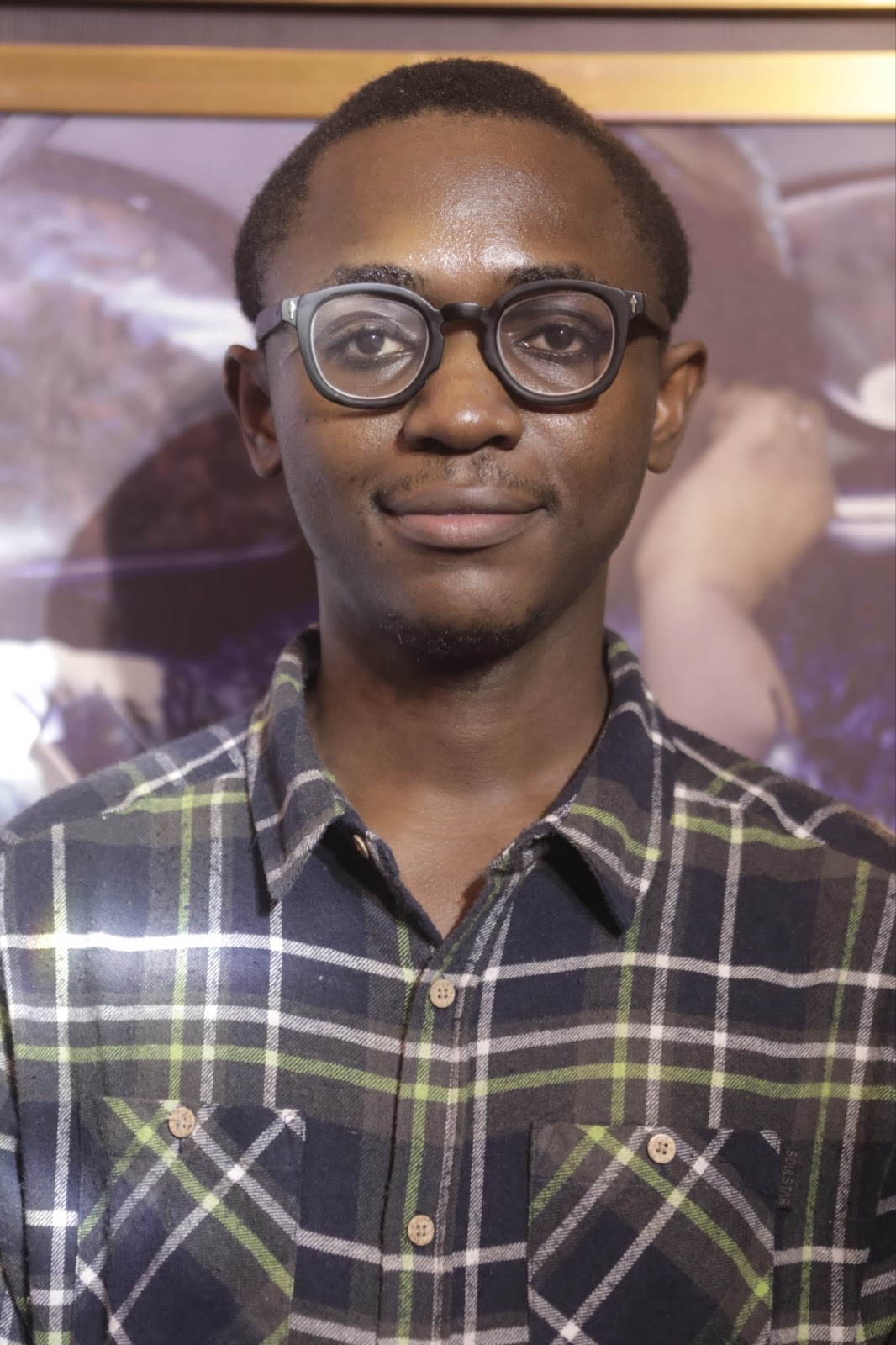
Olisa Eloka, director of Loose Cannon.
How did this film come to be?
My close friend, Kene Ibeneme, wrote a short script and sent it to me. That was in 2021. I loved it. The story was contemporary, minimalist, and profound. It was about a man who was losing himself to survivor’s guilt after an accident claimed his family. I immediately told Kene that I’d love to direct the script someday. But for a long time, nothing happened.
Until one evening in 2023, I was hanging out with Ebuka Njoku in Awka, trading our Nollywood war stories, and he implored me to venture into producing. At the time, I was comfortable strictly writing screenplays, although I’d done some directing and producing in the past. Well, months later, I had an idea for a feature, something historical, and I told Ebuka about it. He loved the idea, but suggested that I make a short film first.
I didn’t want to do it. But Ebuka can be insistent. Not insistent in an overwhelming way, but he just stays on your skin like white on rice. I eventually gave in and decided we could work on a short film, even though I wasn’t sure where the financing would come from. However, I knew that if there was any script I wanted to direct, it was Kene’s. So I called Kene and told him that I wanted to get to work on his script. I made a few revisions. One of the things I told Kene and Ebuka I wanted was to set the story at the end of the Nigerian Civil War.
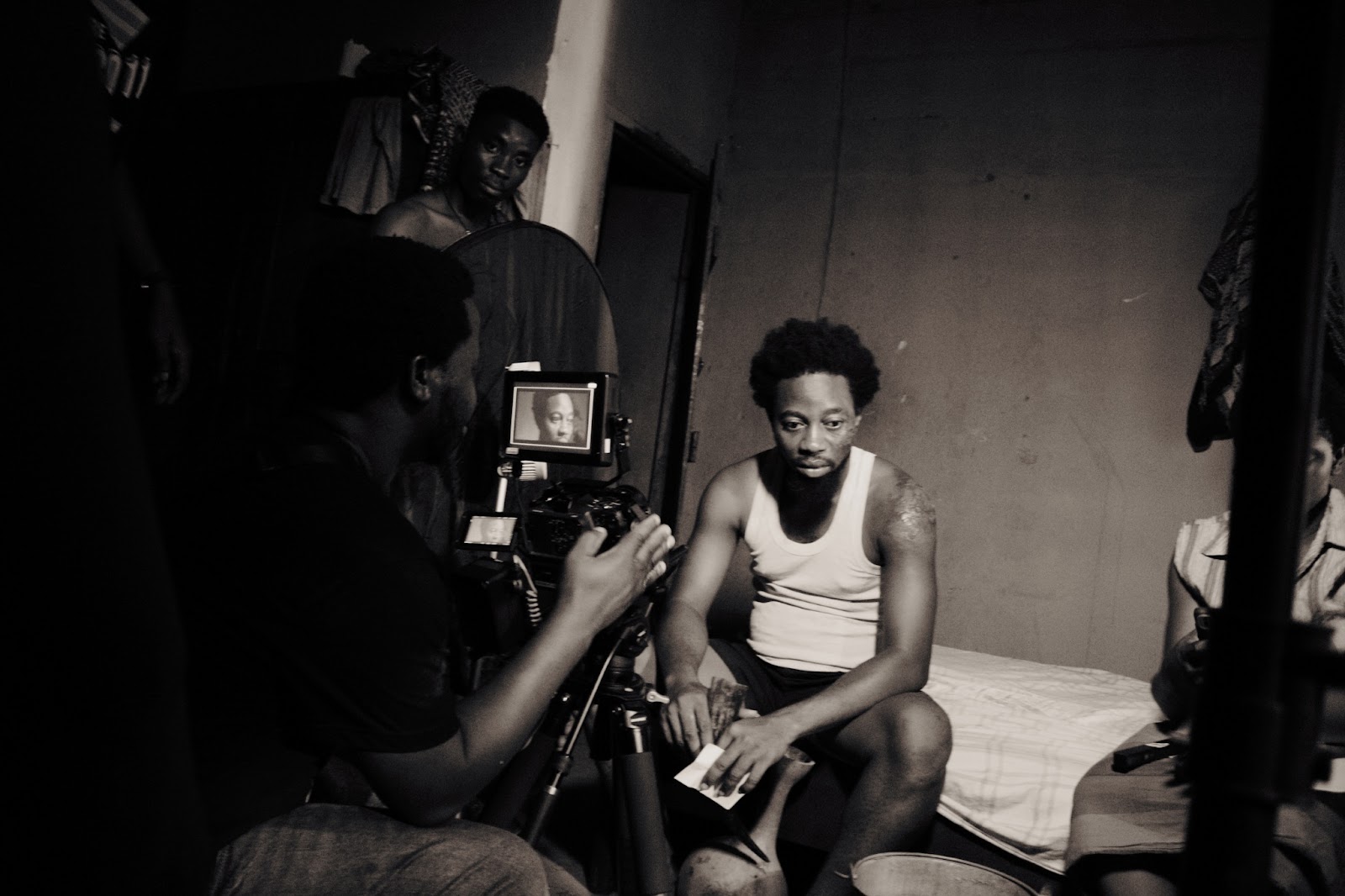
BTS Picture from Loose Cannon.
You tackle the very realities of post-traumatic stress disorder in a country that seemed to have moved on from the genocidal crimes they had just inflicted. Why was it important to explore the story through this character?
When the subject of Biafra comes up, you hear a lot of people talk about the pogroms, the starvation, the bullets and bombs, Effiong’s surrender speech, or Gowon’s No Victor No Vanquished broadcast. However, the second stage of the war started after Biafra’s surrender—the psychological war.
You see, for those who witness it, war doesn’t really end. They live with it for the rest of their lives. It becomes the red of their blood. Lives were wasted, and families lost their fortunes. Millions of people were mentally scarred. These survivors had to start life from scratch. There is a popular video on YouTube of the esteemed writer, Cyprian Ekwensi, selling plastic bottles to survive. We’re talking about the author of Burning Grass and Jagua Nana here.
Gowon’s rehabilitation talk ended up becoming just that… talk. People had to find their way out of the wilderness. The former Easterners were haunted by the terror of the times they lived in. I said former Easterners deliberately because Biafra wasn’t just made up of the Igbo, though they were the majority. The ethnic groups in the Eastern region all had to deal with this carnage. There were many cases of suicide and outright insanity. The late General Officer Commanding of the Biafran army, General Alexander Madiebo, told me that there was nobody who fought in that war who didn’t come out of it with a sort of PTSD. Men, women, children–the trauma was incalculable.
I realised that many people do not talk about the despondency and psychological damages that millions of people who survived Biafra had to live with. You hardly find it exhaustively discussed in books, movies, or at events. This was a time when mental health wasn’t as popular in our part of the world as it is today. I decided to explore that trauma through Ijezie, a former Biafran soldier, whose family perished. I feel he was the perfect candidate for what I had in mind because he’s a soldier, and then a man – his masculinity and profession do not allow him to open up, to be vulnerable. He is mentally breaking apart, but he bottles it in.
And I think that happened a lot at the time—this suppression of emotions. Everyone had to tough it out. He can’t talk to his sister. He can’t even have a chat with himself. We’re looking at a man who’s lost touch with life. Everywhere he turns, he sees ghosts. He survived the war, but the peace is killing him.
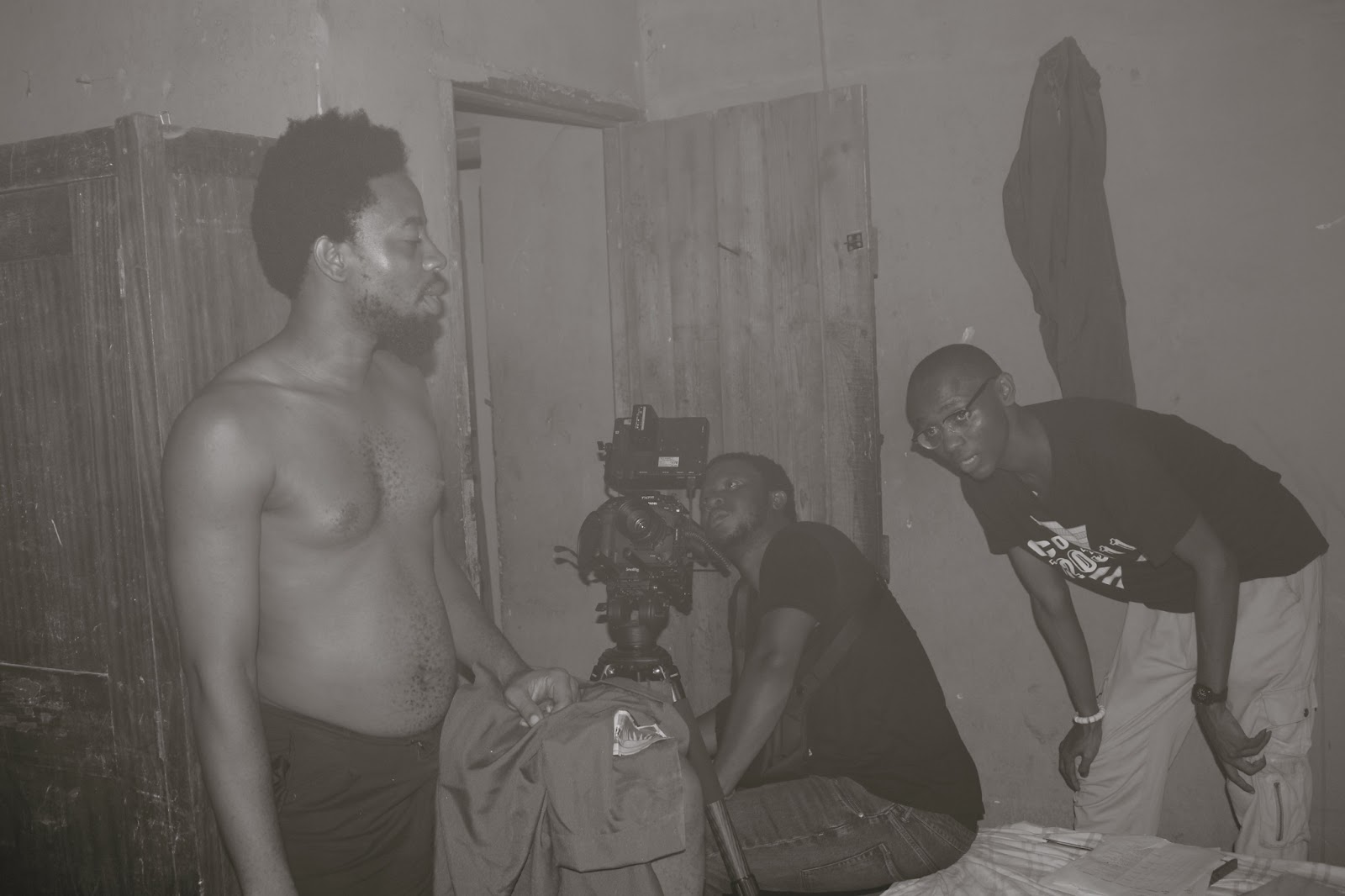
BTS Picture from Loose Cannon.
How did the casting for this film come about, and were there any fears about making it, given the Nigerian government’s long history of censorship?
My view is that in casting, the actor must have the character in him. This is different from having talent. Both temperaments and personalities must somehow align. This helps. I saw Keezyto for the first time in Ebuka Njoku’s Yahoo+ in the cinema. I loved what he did with the Ose character. I couldn’t take my eyes off him. When Ebuka and I were discussing Loose Cannon, he recommended Keezyto, and that was it. But I didn’t know him. I needed to know him as a person.
Because we were cities apart, we talked a lot on the phone, and from the conversations, I got a sense of his personality and history. Keezyto’s father fought in the war, and he inherited his father’s war stories. If I remember correctly, he mentioned that his father never let him watch anything about the war. It was as if the father was shielding him from the atrocities he witnessed, or the father didn’t want an old trauma awakened. So I was working with an actor who understood what I wanted to say before I said a word.
Uniformity of vision was easily established when we shared the war stories our parents told us. Nkeoma is a good friend of mine. When we were discussing the script, we discussed the language. I wanted someone who could perform in that peculiar Umuchu dialect, the town in which the story is set. That was important to me. I am from Umuchu. Nkeoma is from Ezinifite, which is close to Umuchu, and they share a similar, if not the same, tongue. This is my first time working with both actors, but they were an absolute pleasure.

BTS Picture from Loose Cannon.
You asked if I had any worries about censorship. I didn’t. I censor myself way too much to worry about anybody else. It’s shameful that we do not have films about a tragedy of this magnitude. Rwanda isn’t as populous as we are, but there are movies about the genocide there. Holocaust movies are countless. But here, almost nothing. Something has to give. I don’t believe Nigeria will break up because a couple of movies about the civil war were released. If anything, I think it will accelerate national unity.
We need to understand what we have done to ourselves in this country. The Oputa Panel did something similar, but it’s not enough. I understand the role of responsibility in telling such stories, but I don’t accept that the stories should be abandoned because of how ‘sensitive’ they are. There is no story you tell that isn’t sensitive to somebody. But you have to tell it and tell it responsibly.
I listened to the writer, Okey Ndibe, in 2018 during the book tour of his memoir. He said to the audience, “Fear is a choice and I have chosen not to be afraid.” Artists shouldn’t choose fear or use “sensitivity” as a pretext to ignore the voice in their hearts. I think it was Toni Morrison who said that when things are uneasy and challenging, it is exactly the time for artists to get to work. I don’t accept the ruinous limitations of fear. I don’t believe that the subject of the Civil War should be taboo or anything of the sort. I don’t believe in or support provoking for the sake of provocation.
Truth can make some people uncomfortable, but I have never heard of anywhere it doesn’t. Truth is not an orgasm; not everybody loves it. But we have been lying to ourselves in this country, and that hasn’t gotten us anywhere. The future can’t be built on delusions, you see. There are vital truths, historical facts, that shouldn’t be avoided because we are protecting the peace. To my mind, no arrangement of peace rooted in self-deceit is sustainable. In the long run, the elephant in the room, which we all ignored, will come stomping everything down.
So it’s necessary to hold the mirror to our faces. We have to face the fact that in 1966, about thirty thousand Easterners, mostly Igbo, were killed. Between 1967 and 1970, about three million lives were lost in the civil war. And we have to come to terms with the fact that many people carried the trauma of that war to the end of their lives. How can a nation heal if it does not point out its wounds? And Nigeria has lots of it. We have to start from somewhere, and we have to start responsibly.
The main character, Ijezie, does not speak a word, but is only heard through a haunting memory of loss. What informed this choice when putting the film together?
My intention, really, was to make a film that would have more moments of silence than dialogue. You look at the characters and get a portrait of their mental state, their anguish. The deepest sorrows cannot be captured with words. You see it, you feel it, but it defeats words. Tears do not tell the true story of a broken heart. Interestingly, I saw Bergman’s Persona early this year and I loved it. He employed silence gorgeously.
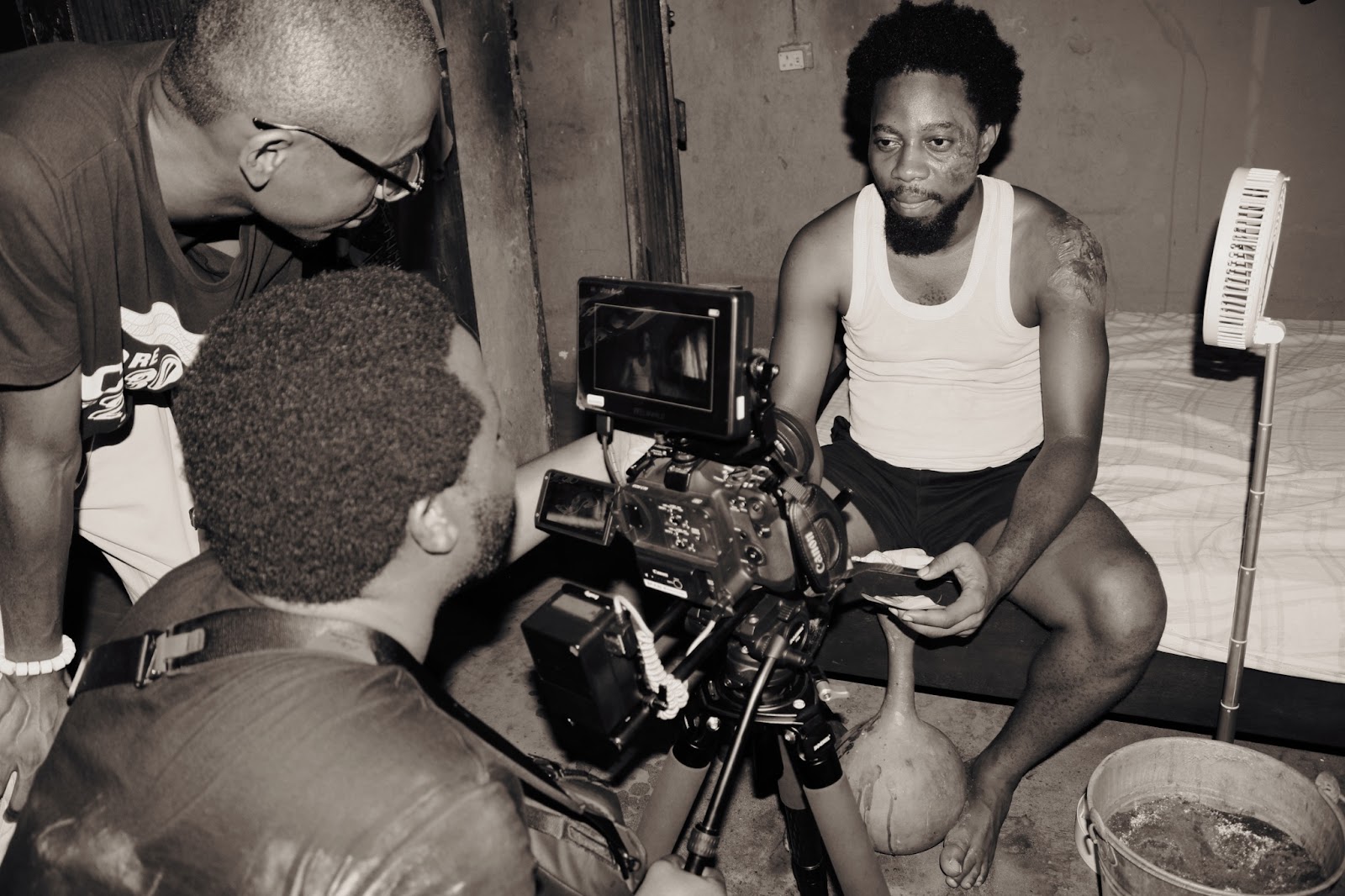
BTS Picture from Loose Cannon.
Given the film was set in the early 70s, how did you go about creating a world to immerse the audience in?
One thing about the East from the mid-sixties to early 1970s is that most homes had little or no furniture because they were looted or destroyed during the war. Many people who ran from their houses didn’t meet the house the same way they left it. Most families had their entire properties in the trunk of their cars, always ready to run from the advancing Federal troops. I was told some people buried their properties before running away. But nothing that remained survived.
With this in mind, I knew that the world I was revisiting wasn’t going to be glamorous. It was going to be desolate, scanty, it had to be a portrait of lack. I didn’t want to romanticize that experience, you see. The house my grandfathers built in the early 40s and 60s still stands, and coupled with the research I’d done for years on the Eastern region from the 1940s to 60s, I know one or two things about the architecture of the time.
There were songs from the time and archival footage from Reuters and Associated Press I really wanted but they proved to be costly, more than the budget of the entire film, which isn’t a lot, so we dropped the idea.
Through the radio, we get to see just how the impunity of the Nigerian armed forces was buried within liberal messages of hope and a new dawn. How important was it to represent the very position of the Igbo people through this imposed dissonance?
With everything that had happened, I think at the time, the Igbo just wanted to survive. War exhausted them. In the words of Max Siollun, they became ‘national outcasts’, despite the fact that the Igbo championed One Nigeria more than anybody else. They gave everything to make Biafra work because after what happened to them in the North and Lagos, Biafra represented the only security they could trust. Seeking refuge in a fortress and having that fortress overrun can be a disillusioning experience.
The war stripped them almost of everything. Ijezie had been so broken that it was difficult for him to believe that anything good would happen to him. There were people like that. But the Igbo are generally very positive. They don’t believe that things will stay bad forever, and I’m not sure they needed any radio to tell them that.
What were some of the challenges you faced in putting this film together?
Raising funds was a big problem. There were things I hoped to achieve, but the money wasn’t there, so I had to work with what I had. Some of my friends who worked on the film granted me a couple of favours, like Omoregie Osakpolor, my good friend and our cinematographer. He’s a professional in every sense of the world. I spent a day in his apartment discussing shots and everything before we moved to Enugu. There were the customary creative arguments and all that, but the chief issue was funding. We knew it would pose a challenge, but the show must go on.
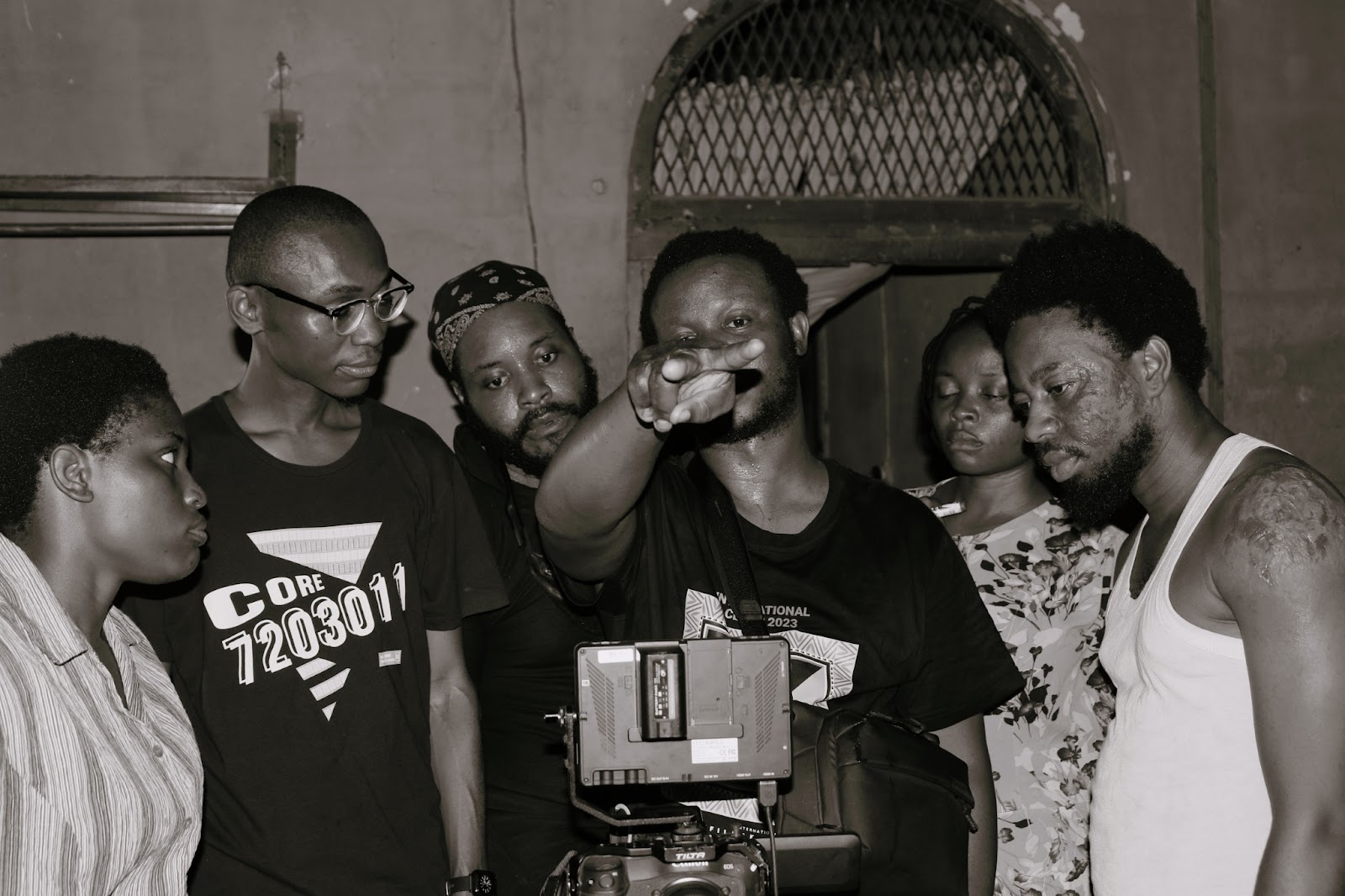
BTS Picture from Loose Cannon.
What kind of conversations do you hope will arise from your film’s engagement of personal and national trauma, especially when we consider the current realities of the country and our failed attempt at national unity?
Part of the sad thing about national trauma is that if it is not practically addressed, it becomes a sort of culture. Nigeria needs therapy. We have a culture of trauma. People commit all kinds of crimes, and they are never prosecuted. The atrocities committed in the 40s, 50s, and 60s have not been addressed. What happens is that the neglected victims pass on their tales of woe to their children, and this goes down through the generations.
Trauma can be part of a nation’s heritage. Societies with visionary leaders know this, and that is why they encourage conversations about their societal difficulties, past and present. This helps positive social engineering. In Nigeria, we talk about everything and do nothing about anything.
Is there anything you’d change about making this film or the film itself?
No.
What do you hope new audiences will take from this film when they see it?
I hope they’d have a great time.
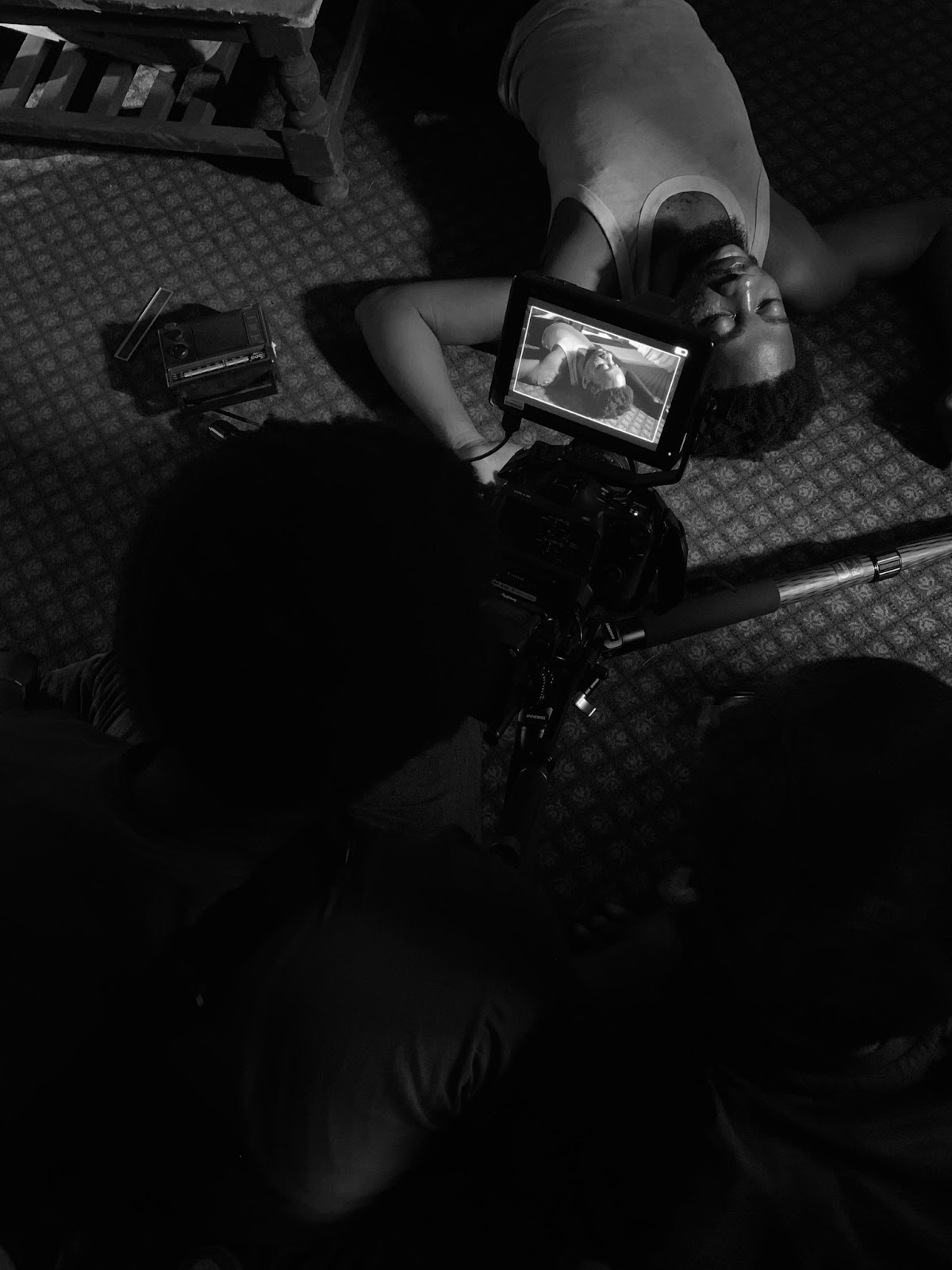
BTS Picture from Loose Cannon.

